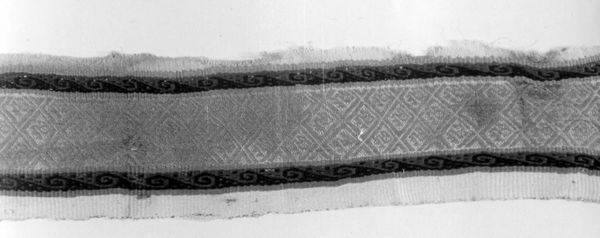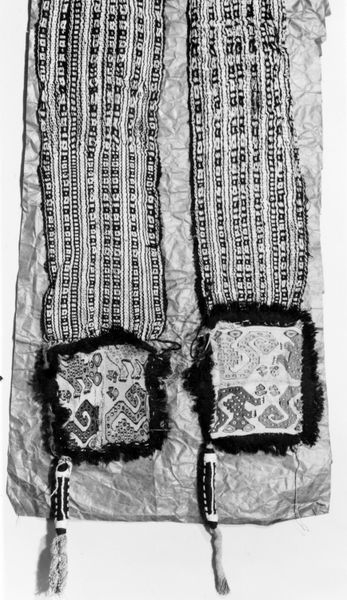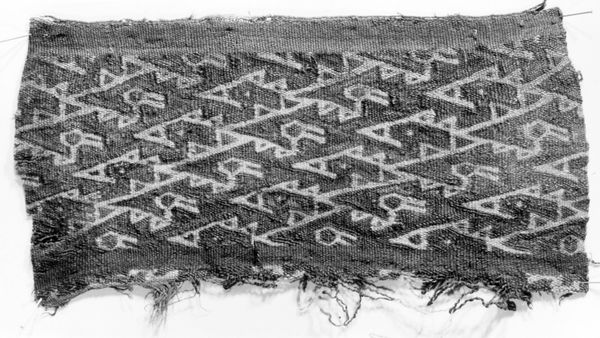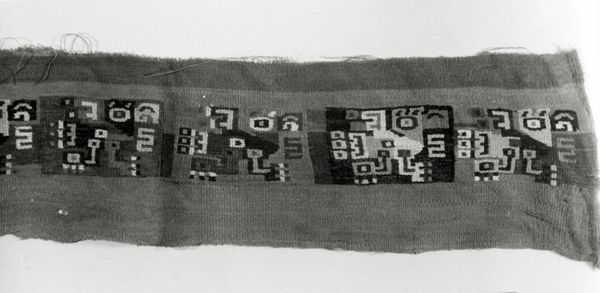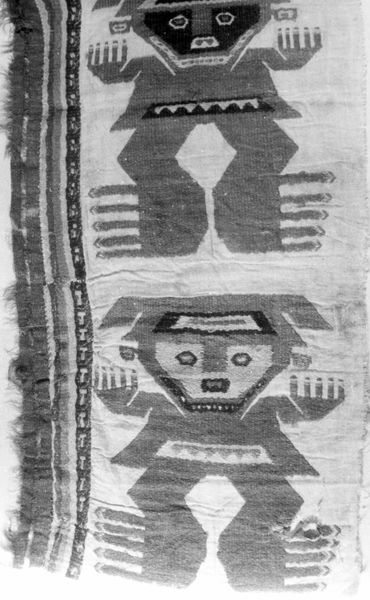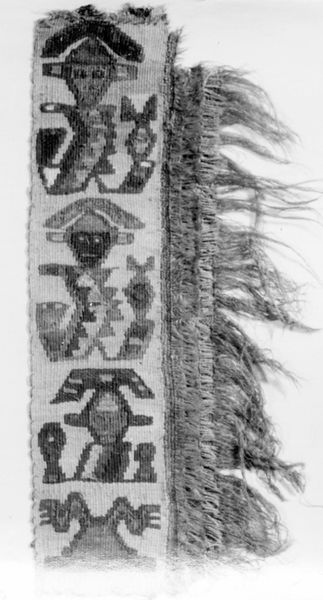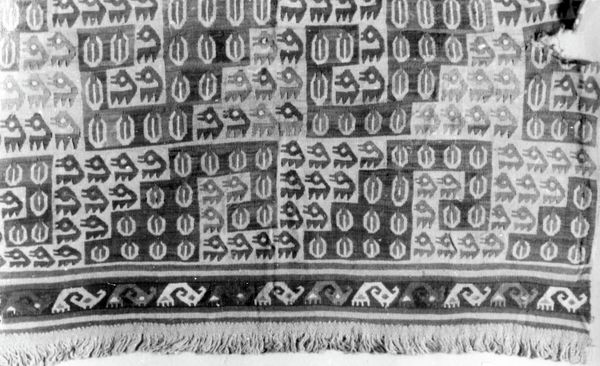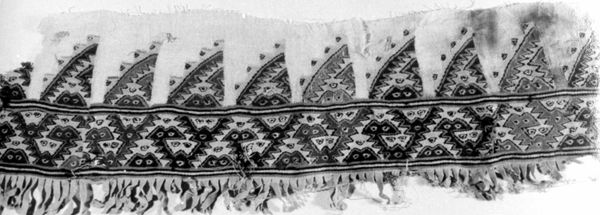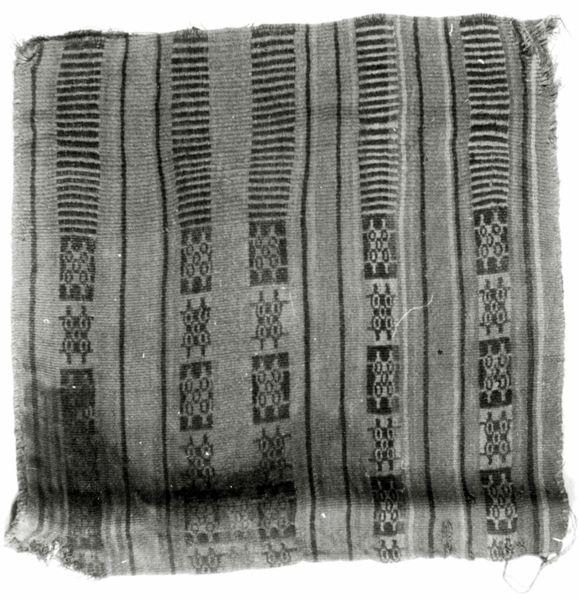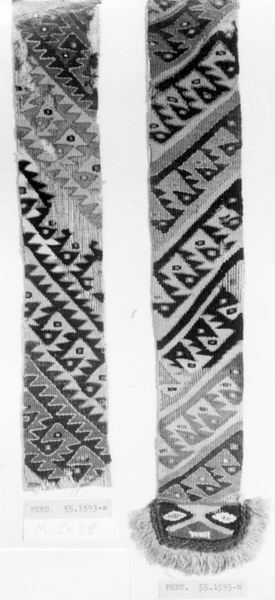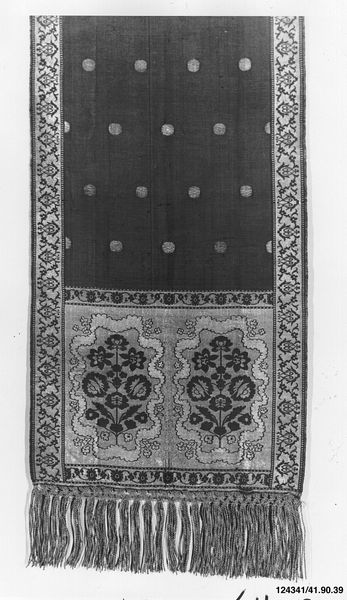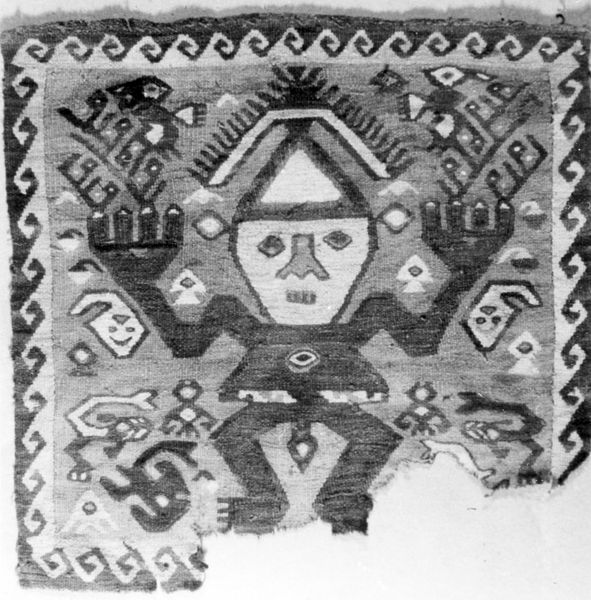
fibre-art, weaving, textile
#
fibre-art
#
textured surface
#
sculpture
#
weaving
#
textile
#
geometric
#
indigenous-americas
Dimensions: 16.5 × 9.5 cm (6 1/2 × 3 3/4 in.)
Copyright: Public Domain
This textile fragment was created by the Moche people of ancient Peru. Existing between 200 and 850 AD, the Moche civilization thrived in a complex social hierarchy, where skilled artisans held a vital position. The Moche are renowned for their sophisticated textiles. Produced primarily by women, textiles were not merely decorative; they were integral to Moche culture, functioning as symbols of status, religious expression, and historical record-keeping. Textiles could also function as markers of ethnic identity. The central figure is likely a representation of a deity, possibly connected to agricultural fertility or power. The grid-like patterns on either side may represent cultivated fields, emphasizing the society's connection to the earth. It represents a worldview and belief system intrinsically tied to their environment and way of life. Consider how textiles like this provided a means of communicating complex ideas and beliefs within Moche society. Even now, despite its fragmentary state, the artwork carries echoes of a vibrant past.
Comments
No comments
Be the first to comment and join the conversation on the ultimate creative platform.
